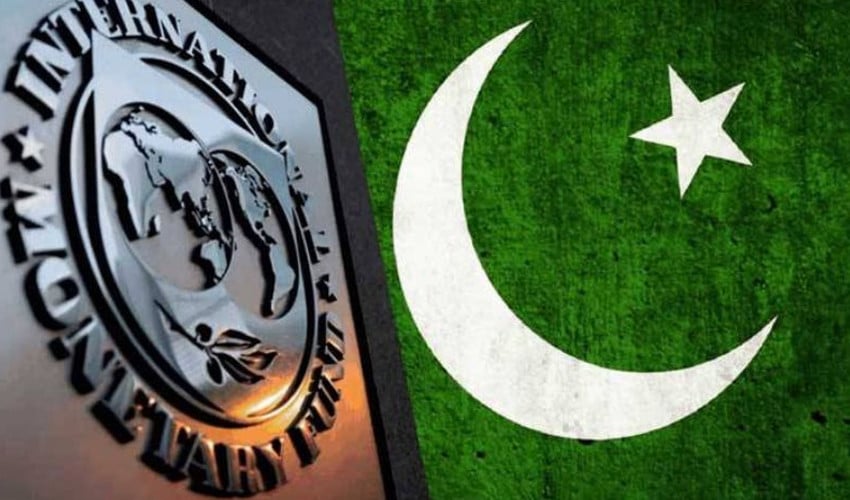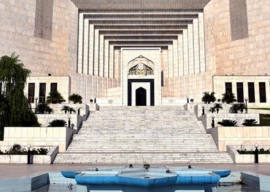
The coalition government has made written commitments to the International Monetary Fund (IMF), pledging to limit the powers and ensure greater accountability in the operations of the Special Investment Facilitation Council (SIFC) and the Sovereign Wealth Fund.
Additionally, Pakistan has agreed to phase out all Special Economic Zones (SEZs) over time.
Both the SIFC and the Sovereign Wealth Fund were established last year with the aim of removing obstacles to economic growth and facilitating the sale of state assets to foreign entities, thereby reducing Pakistan's reliance on IMF bailouts.
As part of these commitments, Pakistan has promised the IMF that it will develop a plan by the end of this fiscal year to completely phase out all existing SEZ incentives by 2035.
The requirement is expected to severely impact Pakistan's aspirations, particularly concerning the implementation of the second phase of the China-Pakistan Economic Corridor (CPEC).
The IMF's staff report, released on Friday, corroborated The Express Tribune report, confirming that the coalition government has agreed to introduce a mini-budget if revenue falls short by more than 1% of the agreed target.
The mini-budget will include additional taxes on professional service providers, contractors, imports of machinery and raw materials, and will raise excise duties on beverages.
The detailed IMF report also revealed that provincial governments are now restricted from setting agricultural support prices and providing subsidies.
Additionally, by the end of this month, provinces will be required to amend their agricultural income tax laws.
Pakistan has accepted nearly 40 conditions as part of the $7 billion IMF package. Many of these reforms are aimed at stemming the financial losses of state-owned enterprises, curbing elite capture, and ensuring fiscal discipline.
However, some conditions are likely to place undue pressure on the public and could deepen rifts between institutions, as well as between the federal and provincial governments.
The written commitments were made by Finance Minister Senator Muhammad Aurangzeb on behalf of the Government of Pakistan.
All conditions are listed in the Memorandum for Economic and Financial Policies (MEFP), duly signed by Aurangzeb and State Bank of Pakistan Governor Jameel Ahmad.
The IMF report underlined that despite some progress on the SOE reform agenda, including the enactment of the SOE Act in February 2023, actions to remove structural impediments and facilitate the structural transformation of the economy have proved insufficient.
"Concerning the establishment of a Sovereign Wealth Fund and the creation of the Special Investment Facilitation Council (SIFC), staff has highlighted the need to ensure a level playing field with regard to the investment environment and avoid a watering down in governance standards", according to the IMF.
It said that these issues remain to be addressed.
In response to the IMF's concerns, the finance minister has given written assurances to limit the SIFC's powers to give tax or investment incentives and promised accountability of the SIFC decisions.
"We will take additional steps to promote investment and ensure competitive neutrality and a level playing field. We commit to ensuring that the SIFC does not propose, nor that the government provides, regulatory, spending, or tax-based incentives of any sort, or any guaranteed returns, or take any other action that could distort the investment landscape", committed the government.
The government further committed that Pakistan "will also establish a set of best transparency and accountability practices for SIFC operations and ensure that all investment made under the SIFC results from the standard Public Investment Management framework".
Mini-budget
The report further revealed that Pakistan will bring the mini-budget if it misses the agreed quarterly targets by 1%. The Federal Board of Revenue (FBR) has already missed the first quarter target by Rs90 billion despite blocking refunds and taking advances. The shortfall was Rs63 billion more than the permissible limit.
As a result, the government will bring a mini-budget by taking many of these measures. It will increase advance income tax on the import of machinery by 1% to raise an additional Rs24 billion.
It will increase the advance income tax on the import of raw materials by industries by 1% to raise Rs42 billion annually and increase the advance income tax on the import of raw materials by commercial importers by 1% to raise Rs12 billion annually.
The government has also committed to increasing the withholding tax on supplies by 1% to generate Rs12 billion annually, increasing the withholding tax on services by 1% for Rs6 billion additional annual revenues and increasing the withholding tax on contracts by 1% for another Rs6 billion.
The government has also promised to increase excise duty on aerated and sugary drinks by 5% to collect Rs28 billion annually.
Other conditions
"We will introduce a 5% increase in the FED on fertilizer and a 5% FED rate on pesticide", the finance minister assured the IMF in writing. Pakistan will not grant tax amnesties, and will not issue any new preferential tax treatment, including exemptions, zero rating, tax credits, accelerated depreciation allowances, or special rates.
It will also seek ex-ante parliamentary approval for any expenditures that are non-budgeted or that exceed the budgetary appropriation.
The released document confirmed that all five governments were required to sign the national fiscal by September 2024.
"The four provinces have agreed to amend their Agriculture Income Tax regimes to fully align them, through necessary legislative changes, with federal personal income and corporate income tax regimes by end-October 2024", according to the written communication.
Each province will begin taxation of agricultural income under this new regime from January 1, 2025, with collection for the second half of FY25 agricultural income in July 2025, it added.
The Finance Minister committed with the IMF that "we are taking action to phase out federal and provincial government price-setting for agricultural commodities by end fiscal year 2026".
The IMF report confirmed another The Express Tribune story about price setting. "We will refrain from announcing support prices (for raw commodities)and discontinue procurement operations that crowd out the private sector, limiting purchase programmes to that specifically required for the federal government's own use and a tightly defined food security with all transactions at market prices and any sales from its stocks will happen at cost recovery".
To set expectations for the 2025 kharif crop season and minimise disruptions, we will lay out our strategy for the transition arrangements by the end of September 2024, according to the commitment.
According to another condition, Pakistan will share with the IMF staff a report detailing actions to reduce the federal government's footprint by the end of September. However, in the National Fiscal Pact, the dissolution of departments has been linked with achieving consensus in the Council of Common Interests.
Governance
Pakistan will amend the Civil Servants Act by February 2025 to ensure that asset declarations of high-level public officials, including assets beneficially owned by them and a member of their family, are digitally filed and publicly accessible through the FBR, with a robust framework for risk-based verification by a single authority.
Pakistan will also publish the full governance and corruption diagnostic assessment report by July 2025. It will enforce the annual inflation adjustment of the unconditional cash transfer by January 2025.
Pakistan will also get parliamentary approval of amendments to the bank resolution and deposit insurance legislation, in a manner that preserves the integrity of the draft legal amendments by October 2024.
It will place undercapitalised private banks under resolution unless these banks are fully recapitalised by the end of October 2024.
Pakistan will complete all policy actions needed to prepare two power distribution companies for privatization and concession transactions by January 2025. It will eliminate captive power usage in the gas sector by January 2025. Pakistan has already revised the gas tariff for in-house power generation from Rs 1,200 per MMBtu in October 2023 to Rs2,750 per MMBtu in February 2024.
Pakistan will also notify the semiannual gas tariff adjustment by February 15, 2025, and that the gas tariff adjustments will continue to include the cost of imported RLNG.
Sovereign Wealth Fund
Pakistan has promised that it will amend the Sovereign Wealth Fund Act by December 2024 to adopt appropriate governance mechanisms and safeguards following international standards and good practices.
It will ensure that SOEs under the ownership of the SWF revert to the SOE Act's governance structures.
According to Pakistan's fresh commitment, the SWF will be defined as a SOE and the legal amendments will ensure that the privatisation or sales of assets and its procurement processes are conducted based on open, competitive, transparent and non-discriminatory principles.
The appointment of the SWF's board and advisory committee members will be done through transparent, merit-based, and participatory processes to safeguard their professionalism and independence from undue public and private influence.
Pakistan will amend Section 50 of the SWF Act to explicitly establish that SWF-owned SOEs are subject to the SOE Act and SOE Policy and any necessary additional amendments to regulate and operationalise the SWF's SOE ownership functions as a holding entity with appropriate oversight systems as agreed with Fund staff.
To strengthen the fiscal safeguards, Pakistan will ensure that appropriate fiscal safeguards are in place, including by requiring that all revenues from SWF operations will be provided directly to the government and not retained by the SWF; and that SWF assets cannot be used to provide borrowing to any public entity, including SOEs, or as collateral.
The execution of the SWF Act and any other action aimed at preparing the SWF for its operation will only be carried out after the above-mentioned reforms are complete.

1728703091-0/elon-(1)1728703091-0-405x300.webp)

1728699586-0/ana-(1)1728699586-0-165x106.webp)

1716638848-0/BeFunky-collage-(1)1716638848-0-165x106.webp)












COMMENTS
Comments are moderated and generally will be posted if they are on-topic and not abusive.
For more information, please see our Comments FAQ